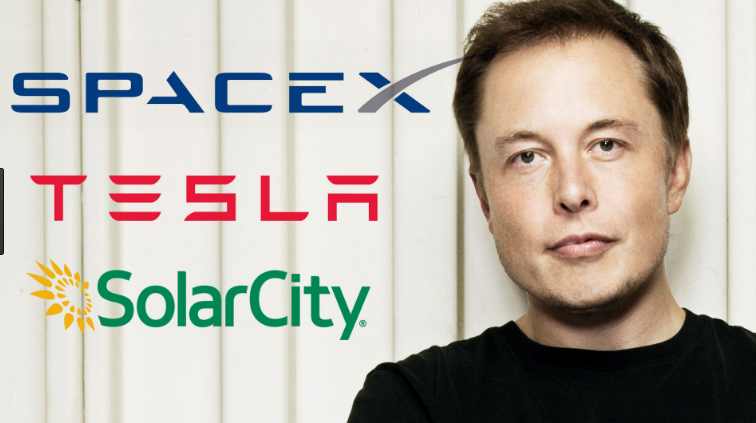
Elon Musk, the world’s richest man and the head of multiple high-profile companies—including Tesla, SpaceX, X (formerly Twitter), the Boring Company, xAI, and Neuralink—has long been regarded as a visionary entrepreneur.
However, his ever-expanding portfolio of commitments is beginning to raise serious concerns among Tesla investors, as the company faces intensifying competition and an uncertain policy landscape.
The latest blow to Tesla came as its stock plunged for the fifth consecutive trading day, dropping 6.3% on Tuesday alone. Over the past week, the company’s shares have fallen by more than 16%, as investors grow increasingly worried about Musk’s distractions and Tesla’s ability to maintain its market dominance.
Register for Tekedia Mini-MBA edition 19 (Feb 9 – May 2, 2026).
Register for Tekedia AI in Business Masterclass.
Join Tekedia Capital Syndicate and co-invest in great global startups.
Register for Tekedia AI Lab.
While much of the recent selloff has been attributed to Chinese EV giant BYD’s advances in autonomous driving technology, another major factor fueling investor anxiety is Musk’s deepening involvement with the administration of U.S. President Donald Trump. Trump’s pro-fossil fuel and anti-green policies stand in direct opposition to Tesla’s core mission of accelerating the world’s transition to sustainable energy, raising concerns about the company’s future direction under Musk’s leadership.
In addition, Tesla’s recent struggles come at a time when BYD, China’s leading EV manufacturer, is rapidly closing the technological gap in autonomous driving. The Chinese automaker recently announced that it would integrate DeepSeek’s cutting-edge AI into its self-driving technology and make it available in nearly all its vehicles. This move represents a major shift in the global EV industry, positioning BYD as a serious challenger to Tesla’s long-held dominance in AI-driven driver assistance.
For years, Tesla has led the way in self-driving technology with its Full Self-Driving (FSD) system, but progress has been slower than anticipated. Regulatory roadblocks, software limitations, and safety concerns have hindered Tesla’s ability to roll out fully autonomous driving.
Meanwhile, China’s robust AI ecosystem is allowing BYD and other Chinese automakers to rapidly develop and implement advanced driver-assistance systems, threatening Tesla’s technological edge.
Adding to Tesla’s woes, the company’s market share in China—the world’s largest EV market—is shrinking as domestic rivals like BYD, Nio, and XPeng continue to expand. BYD’s aggressive pricing strategy, supported by China’s favorable industrial policies, has allowed it to surpass Tesla in global EV sales, further compounding investor fears.
Musk’s Growing Alignment with Trump Raises Red Flags for Tesla’s Green Future
Trump, who has made no secret of his support for the fossil fuel industry, has repeatedly criticized electric vehicles and pushed for policies that favor traditional gasoline-powered cars. Following his reelection, federal tax incentives for EVs have been slashed, environmental regulations have been rolled back, and efforts to slow the transition to renewable energy are being ramped up.
Musk’s deepening ties to Trump have alarmed many investors who fear that his involvement in the administration’s efforts to “streamline government efficiency” could further divert his attention away from Tesla. His recent appointment as the head of the U.S. Department of Government Efficiency has only added to these concerns, with some shareholders questioning whether he is prioritizing politics over his role as Tesla’s CEO.
Adding to these fears, Musk’s bid to acquire OpenAI—alongside a group of investors—has raised further questions about his focus. With Tesla already facing significant challenges in AI development, many believe that Musk should be concentrating on improving Tesla’s self-driving capabilities rather than trying to take control of one of the most influential AI companies in the world.
Investor Concerns: Is Musk Spreading Himself Too Thin?
For years, Musk’s ability to juggle multiple ventures has been seen as a testament to his genius. However, as Tesla’s challenges mount, more investors are beginning to question whether he is spreading himself too thin. His leadership at Tesla has been critical to the company’s success, but with his increasing involvement in politics, AI, and social media, some fear that Tesla could suffer from a lack of strategic direction.
At a time when competition in the EV industry is fiercer than ever, Tesla needs strong leadership to navigate challenges from BYD, regulatory scrutiny, and shifting consumer preferences. If Musk’s attention continues to be divided, there is a growing risk that Tesla could fall behind in key areas such as self-driving technology, battery innovation, and manufacturing efficiency.



